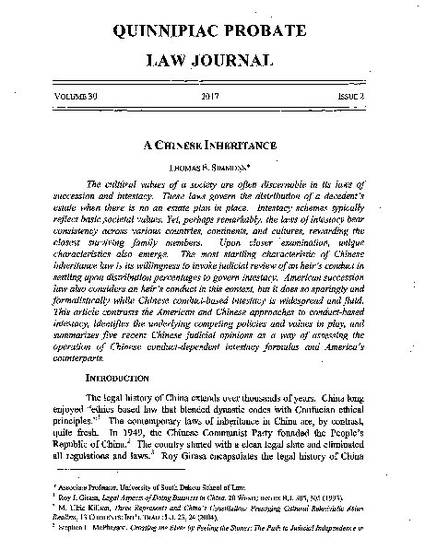
Article
A Chinese Inheritance
30 Quinnipiac Probate Law Journal 124
(2017)
Abstract
The cultural values of a society are often discernible in its laws of succession and intestacy. These laws govern the distribution of a decedent's estate when there is no estate plan in place. Intestacy schemes typically reflect basic societal values. Yet, perhaps remarkably, the laws of intestacy bear consistency across various countries, continents, and cultures, rewarding the closest surviving family members. Upon closer examination, unique characteristics also emerge. The most startling characteristic of Chinese inheritance law is its willingness to invoke judicial review of an heir's conduct in settling upon distribution percentages to govern intestacy. American succession law also considers an heir's conduct in this context, but it does so sparingly and formalistically while Chinese conduct-based intestacy is widespread and fluid. This article contrasts the American and Chinese approaches to conduct-based intestacy, identifies the underlying competing policies and values in play, and summarizes five recent Chinese judicial opinions as a way of assessing the operation of Chinese conduct-dependent intestacy formulas and America's counterparts.
Disciplines
Publication Date
2017
Citation Information
Thomas E. Simmons, A Chinese Inheritance, 30 Qunnipiac Probate Law Journal 124 (2017)
